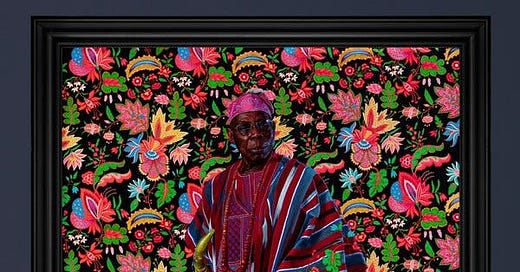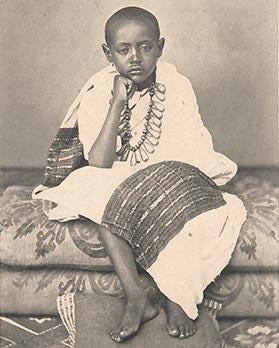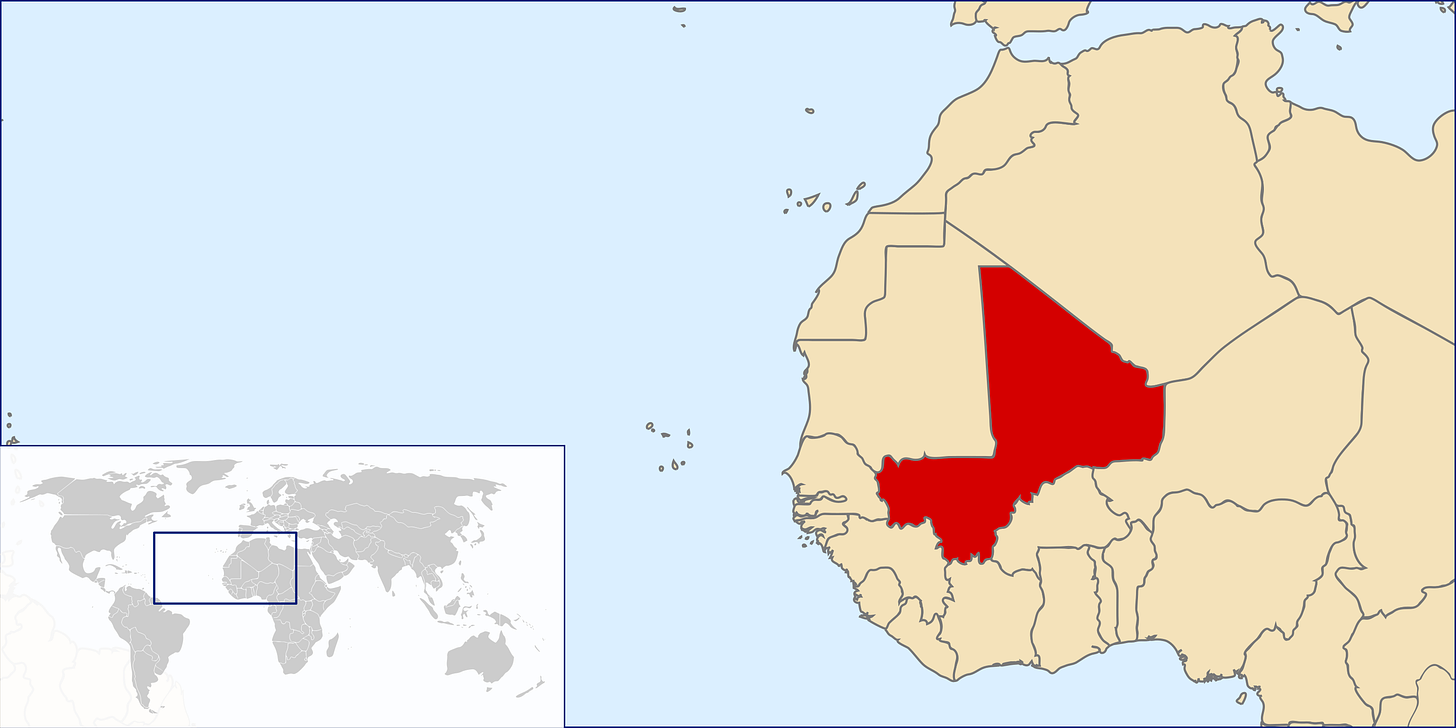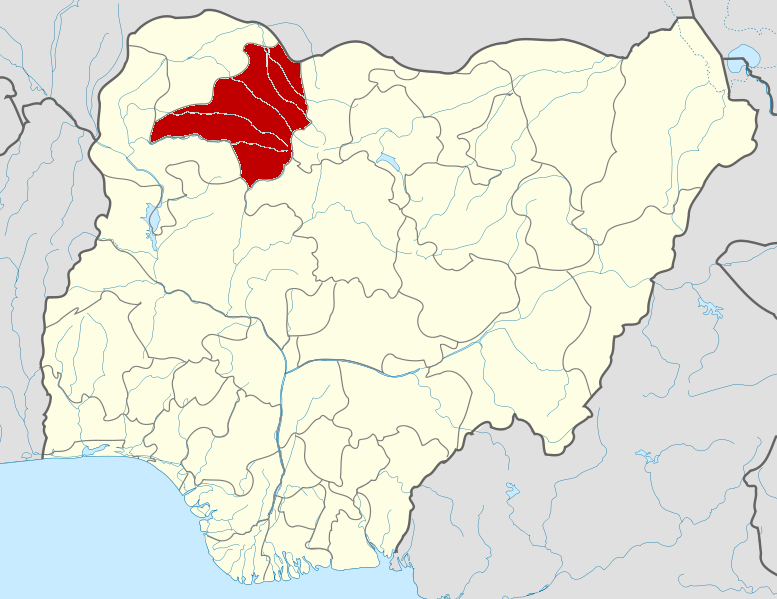🔅 From Obama's Portrait to Africa's Presidents & A Precious Lock of Ethiopian Hair is Finally Returned Home
Plus, Mali's Election Delay, Unilever Pays Up After 2007 Kenyan Violence, Nigerian Kidnapped Students Rescued
Photo of the day
‘The Best View In Mauritania’
Markets:
🔴 Nigerian SE: 66,652.17 (-0.34%)
🔴 Johannesburg SE: 73,398.78 (-1.11%)
🔴 Ghana SE: 3,166.04 (-0.01%)
🔴 Nairobi SE: 96.63 (-0.10%)
🔴 US S&P 500: 4,293.92 (-1.00%)
🔴 Shanghai Composite: 3,102.27 (-0.43%)
Uganda's Budget Takes a Hit Because of the Anti-LGBTQ Law | Uganda's budget is about to get a major haircut. And not the stylish kind. The finance ministry announced that international budget support is expected to plummet by 99% in the next fiscal year. Why? Because the World Bank froze all funding in protest of Uganda's anti-LGBTQ law.
*Data accurate as of the close of markets across the continent
Brief & Bright: Africa's Top Five
From Obama to African Presidents: Kehinde Wiley's Unconventional Portraits
You know that portrait of Obama where he's sitting in front of a flowery background? It was done by artist Kehinde Wiley, and now he's back with another series of unconventional presidential portraits. This time, it's 11 current and former African presidents, all striking a pose in their own unique way. From Congo's president peeking out between curtains to Senegal's president holding a big staff on a rocky shore, these portraits are definitely not your average headshot. And then there's the former Madagascar president on horseback and Ghana's president in traditional garb. Interestingly, Wiley allowed these subjects to choose their own outfit and settings for the portrait. He handed them a book of aristocratic, royal, and military portraits from the 17th to 19th centuries and let them decide how they wanted to be depicted, or not. It makes for fascinating insights into their personas. And while some of these presidents may have a questionable human rights track record, Wiley says he chose not to talk politics with them. If you're reading this from Paris, the exhibition is at the Musée du Quai Branly, and it's called "A Maze of Power." If you're not reading this from Paris, well, check out some of the portraits here.
The Prince's Lock of Hair: A Step Towards Restitution?
A lock of hair from a long-deceased Ethiopian prince, Alemayehu, has been returned to his home country after being held in the UK for over 140 years. The prince, who died at the young age of 18, was taken by British soldiers during an invasion in 1868. Despite recent requests to return his body, the UK has refused. But hey, at least they gave back a lock of his hair! Ethiopia's ambassador is hopeful that this small gesture will lead to more items being returned. The prince's hair was originally in the possession of Captain Speedy, who took him to London as a child after the British abducted him following a siege they laid on his father's fortress. A descendant of Captain Speedy handed over the hair, saying she found it among her family heirlooms and felt it was "a long way from home." A member of Ethiopia's Heritages Restitution National Committee welcomes the return of the hair, but insists this is just the beginning. Calls for the return of the prince's body have been rejected by Buckingham Palace, citing disturbance to other remains buried in the same catacombs.
Mali's Election Delay
Mali’s military junta has announced a delay in the country’s upcoming elections, originally scheduled for February 2024. Why? Technical issues... like a French company holding their civil registry database “hostage” due to unpaid bills. The census company in question, IDEMIA, says they have no contract with Mali’s interim authorities and have shut down their service due to outstanding invoices. In response, the military leaders say they're working on it, hoping to develop an in-house system, and will give us an updated election timeline soon. They came to power in 2021, and initially promised elections as far back as 2022.
Unilever to Pay Up for Tea Pickers Targeted in 2007 Kenyan Violence

Unilever is finally owning up to some past mistakes. The consumer goods giant has agreed to make payments to 77 tea pickers who were attacked during post-election violence in Kenya back in 2007. The violence was a result of widespread concerns about rigging. Seven people were killed, and over 50 women were raped at the plantation in Kericho, which was targeted by armed assailants. But it wasn't until now, after an independent review, that Unilever decided to give these workers some much-needed financial support. Right after the violence, the plantation was temporarily closed, and workers were given money, furniture, and even medical support and counselling. But the workers' claim was that it wasn't enough to make up for the trauma they experienced, with some continuing to suffer from post-traumatic stress disorder. One woman even contracted HIV after being raped.
Nigerian Kidnapped Students Rescued
Just last week, gunmen attacked a university in the northwestern state of Zamfara and snatched up to 20 students and workers. Thankfully, 14 of them have been rescued and security forces are still on the hunt for the rest. But let’s not forget the bigger issue here: armed groups in Nigeria are using these kidnappings to get huge ransoms and fund their operations. And with the military already stretched thin from fighting other armed groups like Boko Haram, it’s not an easy problem to solve. Looks like President Bola Tinubu has his work cut out for him, especially with opposition and activists accusing him of not doing enough to keep people safe. Although he has spent a lot of time addressing the country's economic issues, critics say he has yet to concretely address the insecurity plaguing the country.
Food for Thought
“Anyone who sees beauty and does not look at it will soon be poor.”
— Yoruba Proverb.
Are we hitting the mark?
Enjoying Baobab's updates? Spread the joy and share us with friends and colleagues — we'd be thrilled to have them join!
Feedback or thoughts? Just hit reply. We're all ears!








